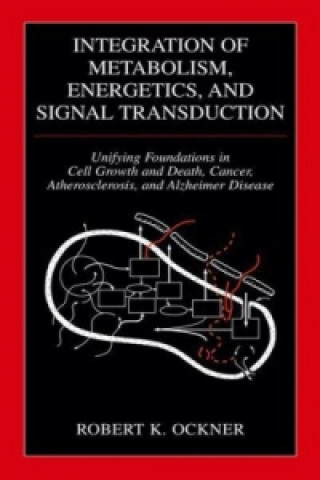
Kód: 01422056
Integration of Metabolism, Energetics, and Signal Transduction
Autor Robert K. Ockner
This book demonstrates how metabolism and energetics are directly linked to those signal transduction pathways that are essential to survival of the cell, the organism, and the species. Recurring patterns of interaction among meta ... celý popis
- Jazyk:
 Angličtina
Angličtina - Vazba: Brožovaná
- Počet stran: 387
Nakladatelství: Springer, Berlin, 2014
- Více informací o knize

3356 Kč
Dostupnost:
50 % šance Máme informaci, že by titul mohl být dostupný. Na základě vaší objednávky se ho pokusíme do 6 týdnů zajistit.
Máme informaci, že by titul mohl být dostupný. Na základě vaší objednávky se ho pokusíme do 6 týdnů zajistit.Prohledáme celý svět
Mohlo by se vám také líbit
-

Anxious Masculinity in Early Modern England
1286 Kč -

The Telegraph: Ultimate General Knowledge Crosswords 1
222 Kč -

At Home With Times Tables
182 Kč -

Topology and Geometry
2126 Kč -

Next Generation Transport Networks
3313 Kč -

Essence of Dielectric Waveguides
5094 Kč -

Lead-Free Electronic Solders
6578 Kč
Dárkový poukaz: Radost zaručena
- Darujte poukaz v libovolné hodnotě a my se postaráme o zbytek.
- Poukaz se vztahuje na celou naši nabídku.
- Elektronický poukaz vytisknete z e-mailu a můžete ihned darovat.
- Platnost poukazu je 12 měsíců od data vystavení.
Informovat o naskladnění knihy
Zadejte do formuláře e-mailovou adresu a jakmile knihu naskladníme, zašleme vám o tom zprávu. Pohlídáme vše za vás.
Více informací o knize Integration of Metabolism, Energetics, and Signal Transduction
Nákupem získáte 336 bodů
 Anotace knihy
Anotace knihy
This book demonstrates how metabolism and energetics are directly linked to those signal transduction pathways that are essential to survival of the cell, the organism, and the species. Recurring patterns of interaction among metabolism, energetics, and signal transduction are fundamental in diverse aspects of human health and disease. This book explores these phenomena in relation to cell growth and death, cancer, atherosclerosis and Alzheimer disease. Part I of the book explores the origins and theory of integration.§Topics covered in Part II include: nutrient and energy metabolism in cell proliferation; fatty acids and growth regulation; mitochondrial function in cell growth and death; metabolic effects of antiproliferative agents; fatty acids and mitochondria, cell growth and injury; metabolism and gene expression.§Part III of the book deals with energetics of neuronal activation; utilization of oxidizable substrates in the brain; astrocyte metabolism and astrocyte-neuron interaction; neuronal energy metabolism in the brain; astroctyes as metabolic buffer and mediator of neuronal injury; and metabolic factors in the pathogenesis of Alzheimer Disease.§"Dr. Ockner has written a fascinating and original book which explores potential metabolic links to neurodegeneration. He takes a fresh look at metabolic pathways involving interaction between astrocyte and neuron that are important for brain health and may play a significant role in the pathogenesis of Alzheimer disease and other normal and pathological phenomena. Dr. Ockner has a distinguished research career in fatty acid metabolism and the fatty acid binding proteins and writes with clarity upon this under-explored aspect of the brain in health and disease. Not only is his book important for understanding links between systemic and cerebral metabolism in neurodegeneration, but is a must read for scientists with an interest in the connection between metabolic pathways and brain function." Bruce Miller, M.D.§Professor of Neurology§Clinical director of the Memory and Aging Center§University of California, San FranciscoThis book demonstrates how metabolism and energetics are directly linked to those signal transduction pathways that are essential to survival of the cell, the organism, and the species. Recurring patterns of interaction among metabolism, energetics, and signal transduction are fundamental in diverse aspects of human health and disease. This book explores these phenomena in relation to cell growth and death, cancer, atherosclerosis and Alzheimer disease. Part I of the book explores the origins and theory of integration.§Topics covered in Part II include: nutrient and energy metabolism in cell proliferation; fatty acids and growth regulation; mitochondrial function in cell growth and death; metabolic effects of antiproliferative agents; fatty acids and mitochondria, cell growth and injury; metabolism and gene expression.§Part III of the book deals with energetics of neuronal activation; utilization of oxidizable substrates in the brain; astrocyte metabolism and astrocyte-neuron interaction; neuronal energy metabolism in the brain; astroctyes as metabolic buffer and mediator of neuronal injury; and metabolic factors in the pathogenesis of Alzheimer Disease.INTEGRATION OF METABOLISM,§ENERGETICS, AND SIGNAL TRANSDUCTION§Unifying Foundations in Cell Growth and Death, Cancer,§Atherosclerosis, and Alzheimer Disease§ROBERT K. OCKNER §"Dr. Ockner has written a fascinating and original book which explores potential metabolic links to neurodegeneration. He takes a fresh look at metabolic pathways involving interaction between astrocyte and neuron that are important for brain health and may play a significant role in the pathogenesis of Alzheimer disease and other normal and pathological phenomena. Dr. Ockner has a distinguished research career in fatty acid metabolism and the fatty acid binding proteins and writes with clarity upon this under-explored aspect of the brain in health and disease. Not only is his book important for understanding links between systemic and cerebral metabolism in neurodegeneration, but is a must read for scientists with an interest in the connection between metabolic pathways and brain function." Dr. Bruce Miller,§Professor of Neurology§Clinical director of the Memory and Aging Center§University of California, San Francisco §"I find this book to be a commendable and comprehensive undertaking as it encompasses an evaluation of a wide area of scientific research. Researchers working in lipid metabolism to those interested in mitochondrial energetics and in the mechanisms of signal transduction pathways in cancer and Alzheimer disease will benefit from this book." M.A.Q. Siddiqui, §Professor and Chairman of the Department of Anatomy and Cell Biology §SUNY Downstate, Brooklyn, NY§Robert K. Ockner, M.D. is Professor of Medicine at the University of California, San Francisco, and is former Director of the UCSF Liver Center and Division of Gastroenterology. He and colleagues initially identified and characterized the cytosolic fatty acid binding proteins. He is a graduate of the Harvard Medical School and completed clinical and research training at Boston City Hospital, National Institutes of Health, and Massachusetts General Hospital. §Cover art by Sadie McFarlane
 Parametry knihy
Parametry knihy
Zařazení knihy Knihy v angličtině Mathematics & science Biology, life sciences Biochemistry
3356 Kč
- Plný název: Integration of Metabolism, Energetics, and Signal Transduction
- Autor: Robert K. Ockner
- Jazyk:
 Angličtina
Angličtina - Vazba: Brožovaná
- Počet stran: 387
- EAN: 9781441934505
- ID: 01422056
- Nakladatelství: Springer, Berlin
- Hmotnost: 706 g
- Rozměry: 248 × 165 mm
- Rok vydání: 2014
Oblíbené z jiného soudku
-

Wilson and Walker's Principles and Techniques of Biochemistry and Molecular Biology
1431 Kč -

Schaum's Outline of Biochemistry, Third Edition
772 Kč -

DHEA Breakthrough
196 Kč -
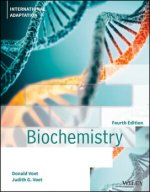
Biochemistry, Fourth Edition International Adaptation
1901 Kč -
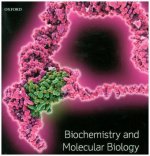
Biochemistry and Molecular Biology
1832 Kč -
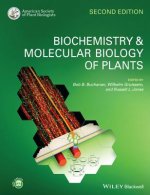
Biochemistry and Molecular Biology of Plants 2e
3213 Kč -

Ice Cream
2643 Kč -

Advanced Molecular Genetics
4244 Kč -

Biochemistry
1401 Kč -
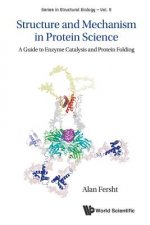
Structure And Mechanism In Protein Science: A Guide To Enzyme Catalysis And Protein Folding
2143 Kč -

Voet's Principles of Biochemistry, 5th Edition Glo bal Edition
1902 Kč -

Exercise Biochemistry
3313 Kč -
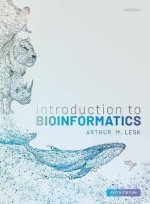
Introduction to Bioinformatics
1608 Kč -

Female Brain
347 Kč -
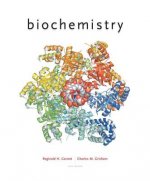
Biochemistry
2716 Kč -
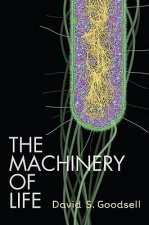
Machinery of Life
993 Kč -

BIOS Instant Notes in Biochemistry
917 Kč -
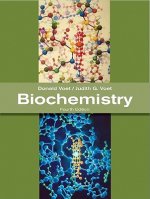
Biochemistry
10505 Kč -

Protein Structure and Function
2073 Kč -

Medical Biochemistry Principles for Medical Students
608 Kč -

Cell: A Very Short Introduction
249 Kč -
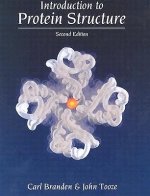
Introduction to Protein Structure
2691 Kč -
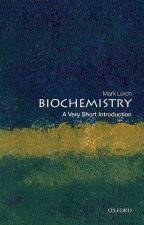
Biochemistry: A Very Short Introduction
249 Kč -
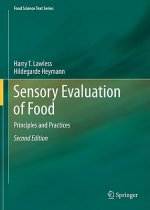
Sensory Evaluation of Food
2466 Kč -

Pulp and Paper Industry
5306 Kč -
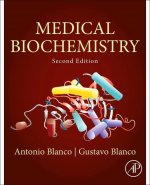
Medical Biochemistry
3968 Kč -

Marks' Essentials of Medical Biochemistry
3092 Kč -
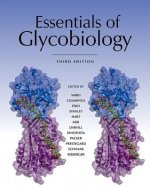
Essentials of Glycobiology, Third Edition
5109 Kč -

Chemistry and Biochemistry of the Amino Acids
2987 Kč -

Introduction to Proteins
2969 Kč -
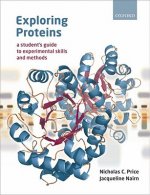
Exploring Proteins
1732 Kč -
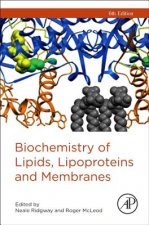
Biochemistry of Lipids, Lipoproteins and Membranes
2821 Kč -

Case Files Biochemistry 3/E
1254 Kč -
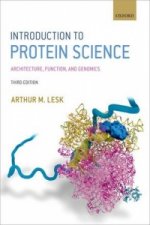
Introduction to Protein Science
1925 Kč -
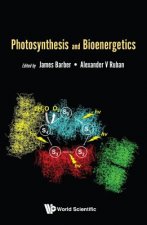
Photosynthesis And Bioenergetics
4121 Kč -

Bioavailability, Leachability, Chemical Speciation, and Bioremediation of Heavy Metals in the Process of Composting
3880 Kč -

Bioenergetics
2202 Kč -

Protein Engineering Techniques
1681 Kč -

Proteomics Protocols Handbook
9783 Kč -

Introduction to Bioorganic Chemistry and Chemical Biology
2691 Kč -

Chemistry of Life
356 Kč -

Growth Hormone Secretagogues in Clinical Practice
11112 Kč -
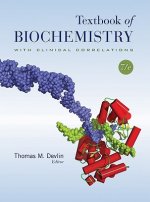
Textbook of Biochemistry with Clinical Correlations
8348 Kč -

Plant Biochemistry
3395 Kč -

Environmental Soil Biology
3313 Kč -

Polar Lipids
3258 Kč -

GHRH, GH, and IGF-I
6578 Kč -

Physico-chemical Properties of Jackfruit
1475 Kč -
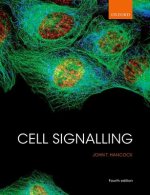
Cell Signalling
5783 Kč
Osobní odběr Praha, Brno a 12903 dalších
Copyright ©2008-24 nejlevnejsi-knihy.cz Všechna práva vyhrazenaSoukromíCookies


 Vrácení do měsíce
Vrácení do měsíce 571 999 099 (8-15.30h)
571 999 099 (8-15.30h)